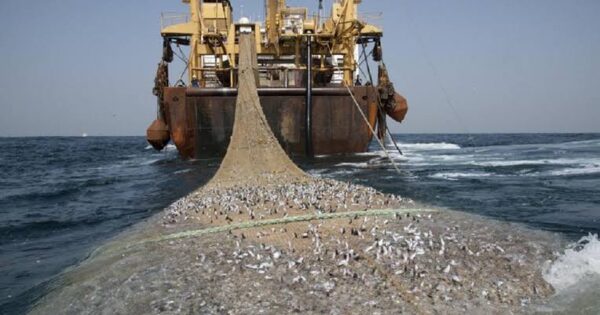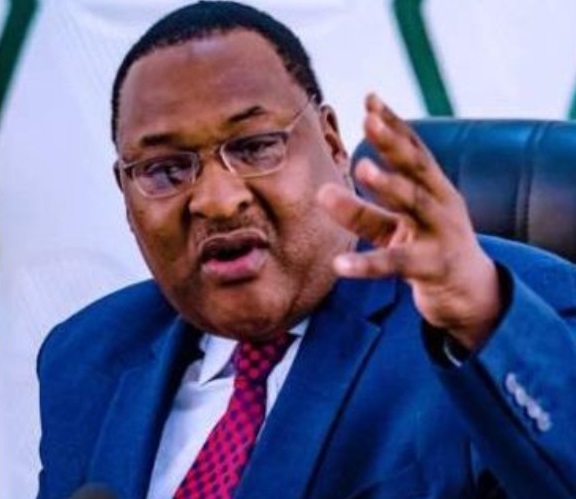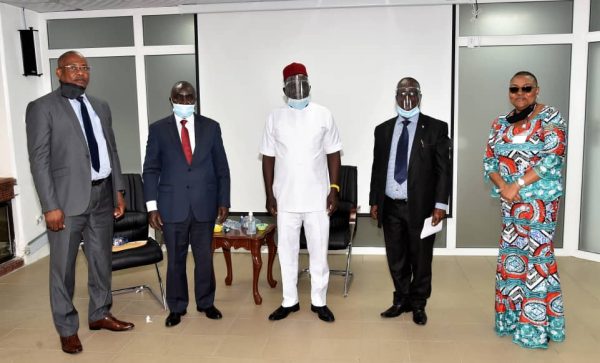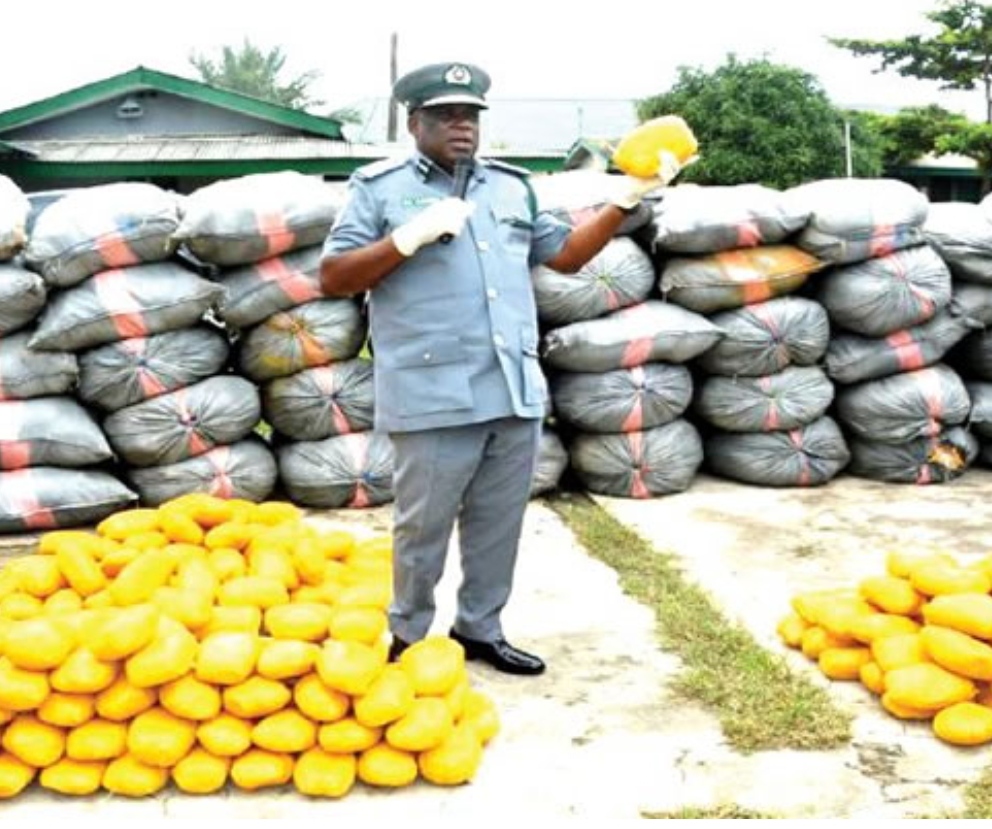NEWS LENS
Illegal Fishing: How Nigeria Could Stop $70m Annual Losses
· Nigerian regulators missing at global meetings
· AfCFTA: Stakeholders want FG to prioritize ship acquisition
By Kenneth Jukpor
Amid the fiscal issues plaguing Nigeria’s economy, experts have revealed strategies to curb the estimated $70million annual losses to Chinese and European trawlers who fish illegally on Nigerian waters.
Veterans in fishing, as well as other experts in maritime business, have posited that the move to curb illegal fishing in the country should start with the government ensuring clarity in the regulatory framework for fishing and providing one ministry for all aspects of the business.
Speaking with MMS Plus at the maiden edition of Nigeria International Maritime Summit (NIMS), a former Chairman of Nigeria Fishing Trawler Owners Association (NIFTOA), Barr. (Mrs.) Margaret Orakwusi stressed that most countries that seriously engage in fishing have a dedicated ministry for it.
“Fishing is a very important business around the world. All the countries that are seriously engaged in fishing have a ministry dedicated to fishing and it is headed by a Minister. Most times, we attend international meetings on matters affecting fishing and there is no Minister sitting on the table for Nigeria. This means that Nigeria isn’t being effectively represented in meetings where fishing matters are deliberated on the global level,” she said.
Orakwusi, who is currently the chairperson of Nigerian Ship-owners Forum, added that Nigeria’s coastal waters contain diverse species of fishes, which contribute to the food and economic security of its people and also earn foreign exchange for the nation.
She also observed that there is also the question as to who is really in charge of fishing in Nigeria.
“The Federal Department of Fisheries is in-charge of fishing regulations and related matters. This department is under the Ministry of Agriculture. The Ministry of Transportation regulates the fishing trawlers and vessels. We also have dealings with the Ministry of Finance and the Foreign Affairs Ministry too, because we sell our products to other countries. What we are saying is why don’t we bring all these together under one platform and seriously regulate our fishing business, safeguard our assets and address other issues.”
“The problem of big vessels poaching on Nigerian waters has been reported at several fora and it was reiterated at this NIMS conference. Who gave those huge foreign vessels the fishing license to operate on Nigerian waters? Who regulates what they are doing? So, we really need a dedicated Ministry for Fishing and we have been advocating for this in the last two decades,” she posited.
Also speaking on the issue, a former Director General of Nigerian Maritime Administration and Safety Agency (NIMASA), Barr. Temisan Omatseye said that most countries don’t separate the administration of waters from fisheries like Nigeria.
”The issue of Illegal Unreported and Unregulated (IUU) fishing is domiciled in the Ministry of Transportation. It is the Transport Minister that should go to Spain to attend the global meetings. In the last meeting, the Minister of State for Transportation, Senator Gbemisola Saraki went but people had to come from the Ministry of Agriculture to brief her on the issues before she could go to speak at the conference.”
“In Nigeria, we need to review the administration of fisheries because it should be under the Transport Ministry and not Agriculture. Fishery is part of the ocean and we need to keep the regulation of this business in one place. We should have a Ministry of Transportation that covers fisheries because it takes place on the oceans. The security, standard of crafts and other regulations should be under the Transportation Ministry,” he added.
Meanwhile, regional shipping experts have encouraged Nigeria to specialize in specific aspects of the maritime sector to have an area of strength ahead of the African Continental Free Trade Agreement (AfCFTA).
The immediate-past Chief Executive Officer, South African Maritime Safety Authority, Commander Tsietsi Mokhele and the former Commissioner of Liberia Maritime Authority, Mr. Binyah Kesselly made this argument at the NIMS conference last week.
They observed that Asian nations are leading various aspects of shipping as the Philippines lead in seafaring, Singapore has become a hub for connectivity via seaports, while Japan and China are among the top three ship owning nations.
When quizzed on the most advantageous area in the maritime sector which represents high value for Nigeria’s economy under AfCFTA, the Nigerian Co-Champion of AfCFTA for Transportation, Mrs. Funmi Folorunsho made a case for growing the nation’s fleet.
Folorunsho, who is also the Secretary-General of the African Shipowners Association (ASA), posited that ship acquisition should be one of Nigeria’s main focuses, noting that ships always gravitate towards the availability of trade which is guaranteed under AfCFTA.
“In Nigeria, we already have existing ports. So, we can start to work with the ports that we have at the moment. It is important to note that the ports in Nigeria are fixed but ships move towards the available trade. Ships can move all over Africa and as Secretary-General of ASA; I can speak from experience and say that Nigeria can achieve more with ships as we go into AfCFTA. In the order of priority, I would also state that emphasis should be on ships. Nigeria should work assiduously in the area of vessel acquisition for AfCFTA than any other area. I’m biased as a ship-owner but this is also the business reality,” she said.
On his part, the Chief Executive Officer of NIMS, Dr. Emeka Akabogu told MMS Plus that the leadership of the summit would study the communiqué and give a direction for the sector with regards choosing an aspect of shipping to explore immediately.
He, however, noted the need for a national transport policy which was highlighted by several participants, adding that several industry experts have clamoured for the policy over the years.
“Although there is an existing transport policy that has been considered, it is however necessary that it is thoroughly implemented and enacted as a formal document which expresses Nigeria’s maritime policy. This is necessary to create the framework for action that is uniform and consistent by industry operators across board. There is a great need for a national transport policy and as soon as that is put in place, it will be a welcome development,” Akabogu said.








